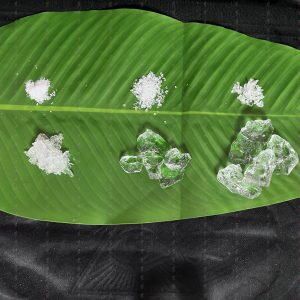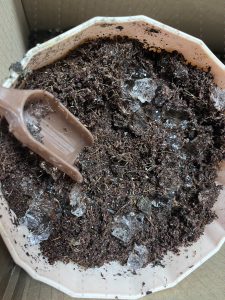What is Potassium Polyacrylate?
Potassium Polyacrylate is a superabsorbent polymer (SAP) that can absorb and retain extremely large amounts of liquid relative to its own mass. It is a potassium salt of polyacrylic acid and appears as a white, granular or powdery substance. Due to its remarkable water-absorbing properties, it is commonly used in a variety of applications, especially in agriculture.

Chemical Properties and Structure
Chemically, potassium polyacrylate is represented by the formula (C3H3KO2)n(C_3H_3KO_2)_n(C3H3KO2)n. Its structure consists of long chains of polymerized acrylic acid, with potassium ions neutralizing the acid groups. This structure allows it to form a network that can trap and hold water molecules.
How Does Potassium Polyacrylate Work?
The polymer works through a process called osmosis. When water comes into contact with potassium polyacrylate, it is drawn into the polymer network and held there. This ability to absorb water can range from 100 times its own weight, depending on the conditions and the specific formulation of the polymer.
Applications of Potassium Polyacrylate
- Agriculture:
GELSAP Water retention agent - Water Retention: Potassium polyacrylate is widely used in agriculture to improve water retention in soils. It helps reduce the frequency of irrigation and enhances the efficiency of water usage, which is particularly beneficial in arid regions.
- Drought Mitigation: It can be used to help plants survive periods of drought by providing a consistent supply of moisture.
- Soil Conditioning: By improving the soil’s water-holding capacity, it aids in the better growth of plants, increasing crop yields and reducing water stress.
- Horticulture and Landscaping:
- Potted Plants: Potassium polyacrylate is often mixed with the soil in potted plants to reduce the need for frequent watering.
- Lawns and Gardens: It helps maintain lush, green lawns and gardens by ensuring that the plants have access to sufficient water.
- Industrial and Commercial Uses:
- Diapers and Hygiene Products: Its ability to absorb large quantities of liquid makes it useful in products like diapers and sanitary napkins.
- Waste Solidification: It is used in various industrial processes to solidify and manage liquid waste.
Environmental Impact and Safety
Potassium polyacrylate is considered non-toxic and safe for use in agricultural and horticultural applications. It is biodegradable, breaking down into water, carbon dioxide, and potassium, which are all naturally occurring substances. However, it is important to use it according to recommended guidelines to avoid potential soil imbalances due to excessive potassium.
Benefits of Using Potassium Polyacrylate
- Water Conservation: Helps conserve water by reducing the need for frequent irrigation.
- Improved Plant Growth: Enhances plant growth and crop yields by providing a steady supply of moisture.
- Cost-Effective: Reduces water consumption and the costs associated with irrigation.
- Environmental Sustainability: Promotes sustainable agricultural practices by optimizing water usage.
Potassium polyacrylate is a versatile and highly effective superabsorbent polymer with a wide range of applications, particularly in agriculture and horticulture. Its ability to significantly improve water retention in soil makes it an invaluable tool in efforts to conserve water and enhance plant growth. As with any agricultural additive, it is important to use potassium polyacrylate responsibly to maximize its benefits while minimizing any potential environmental impact.


